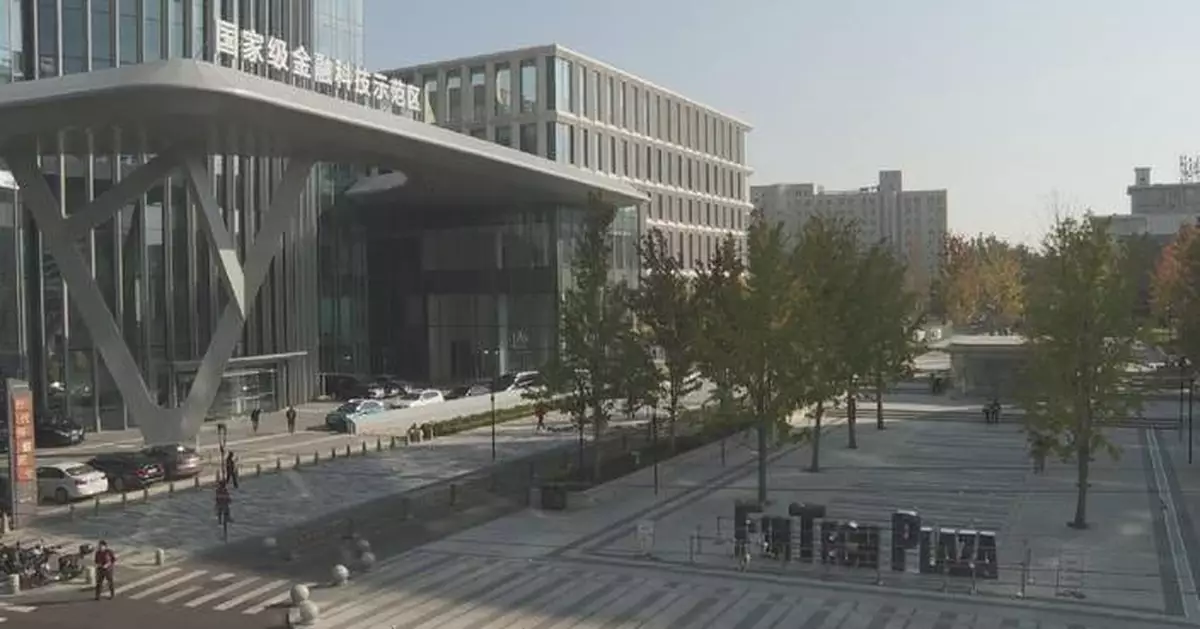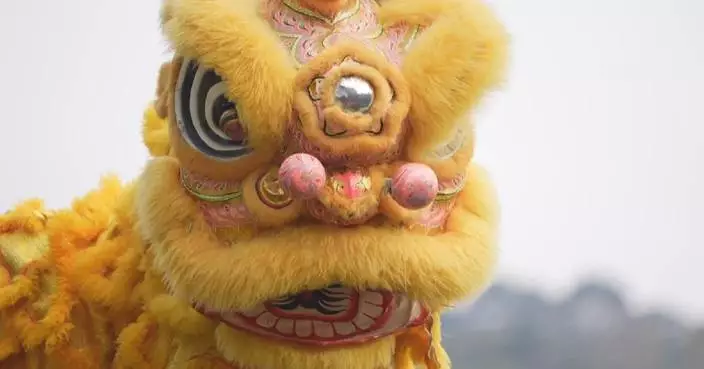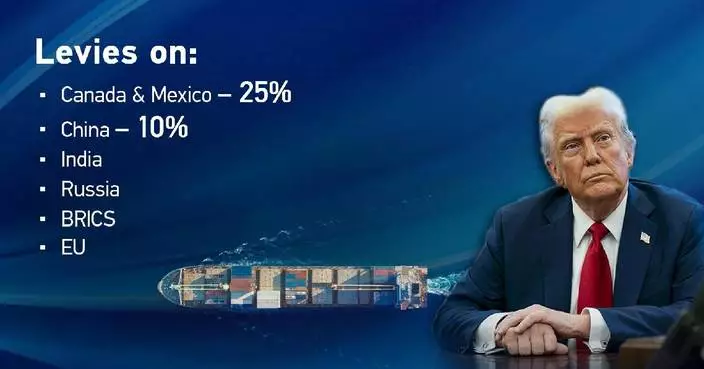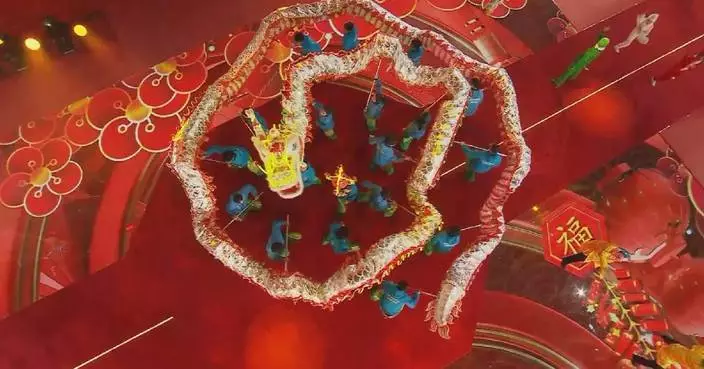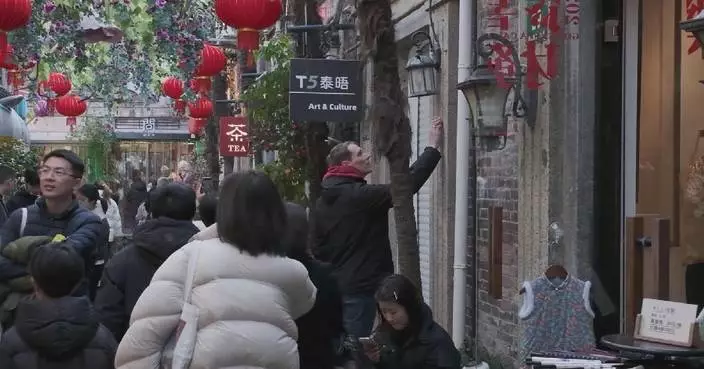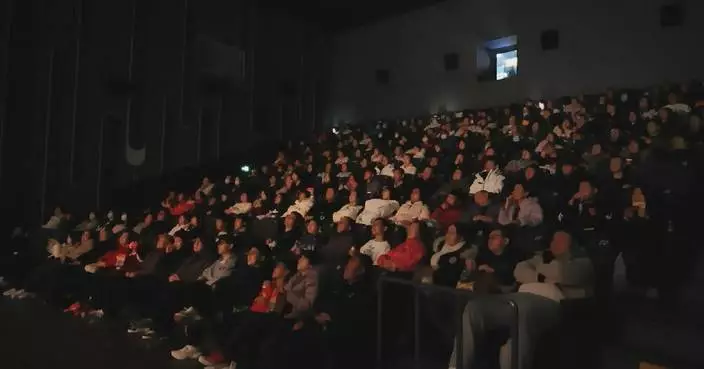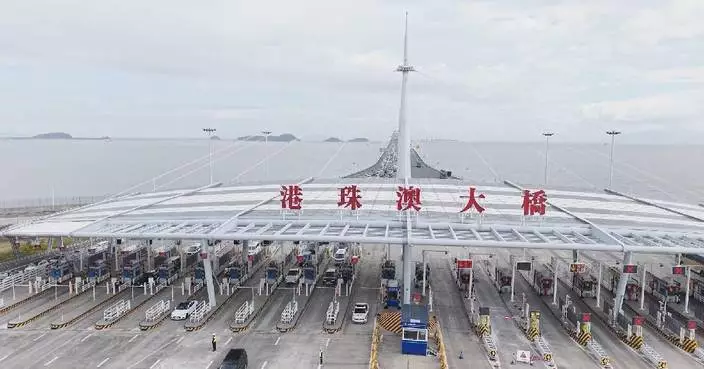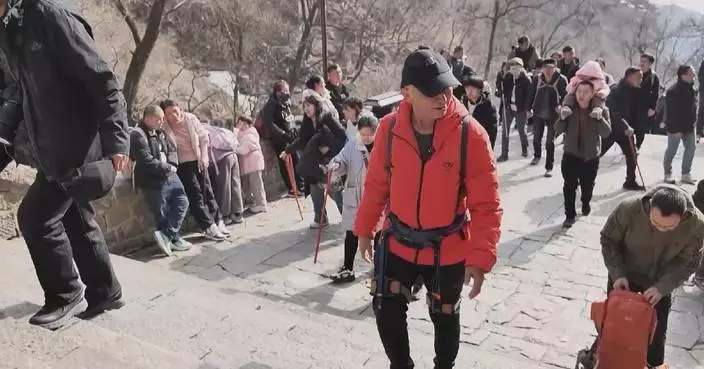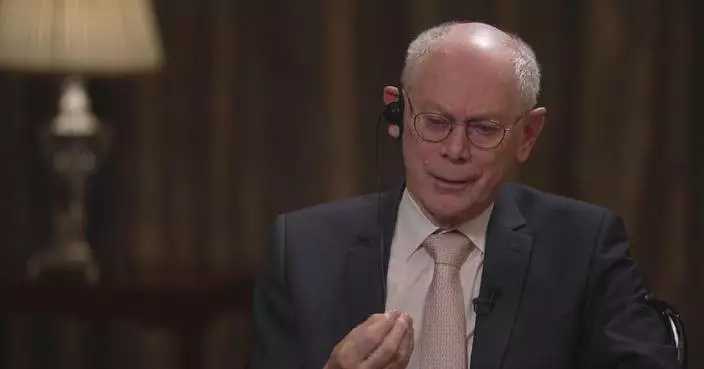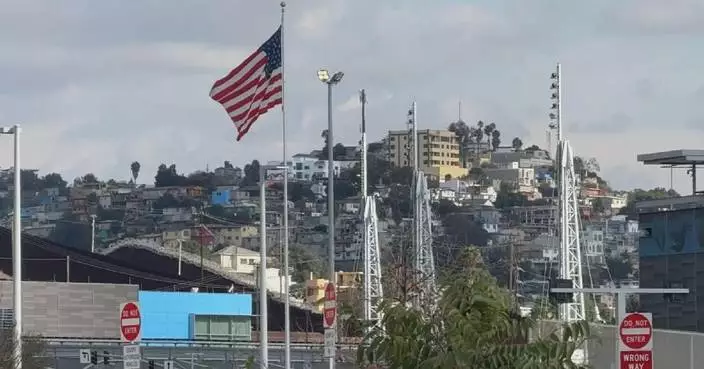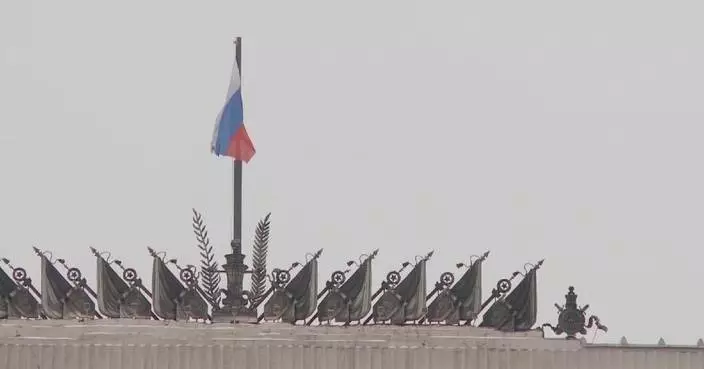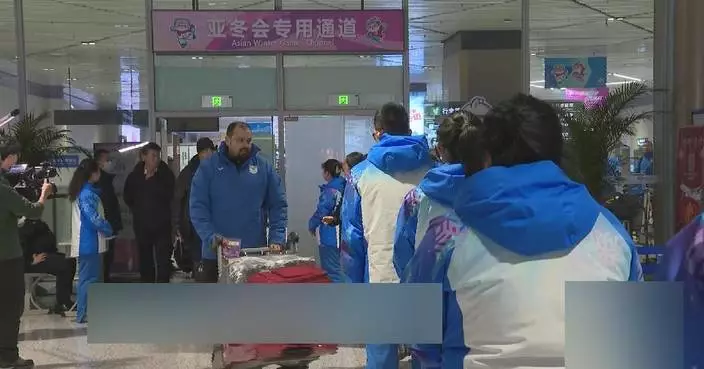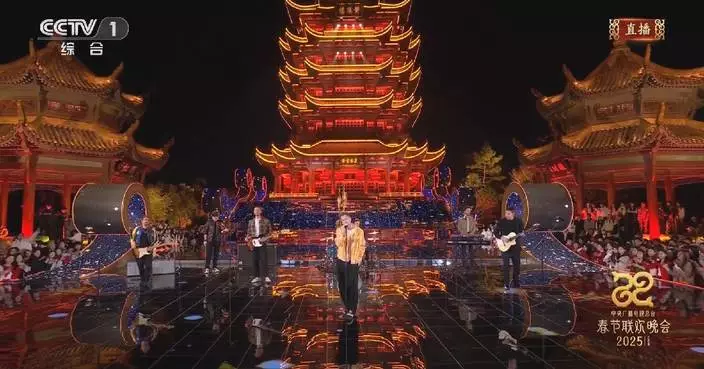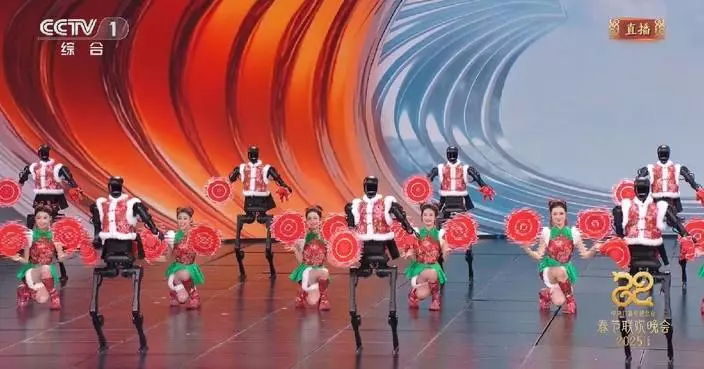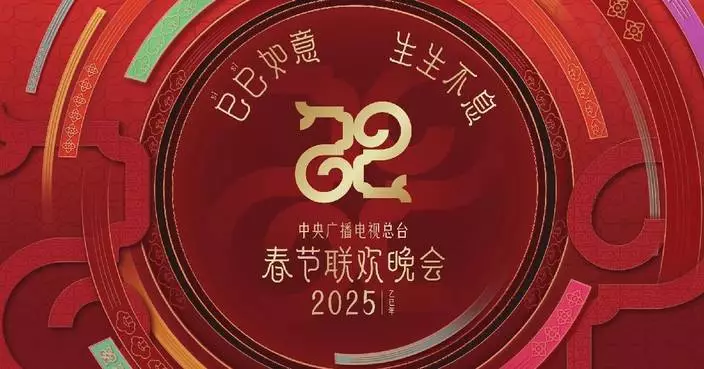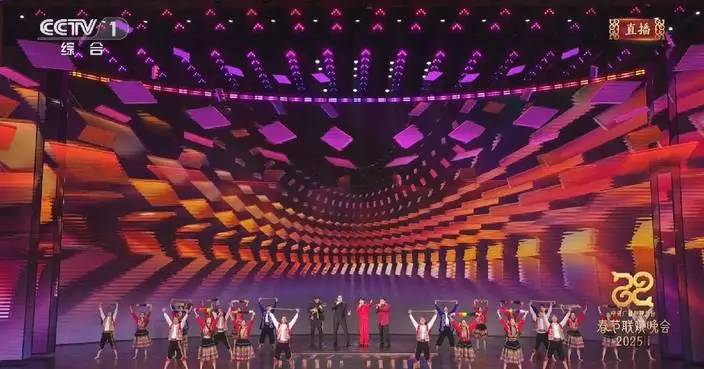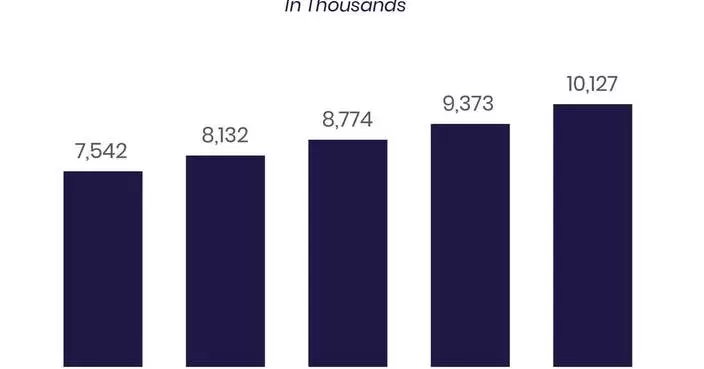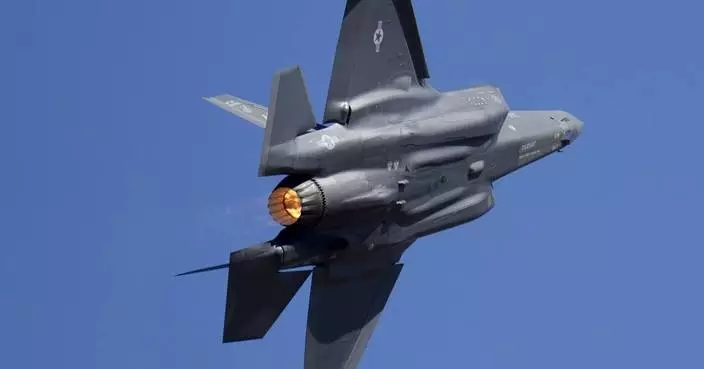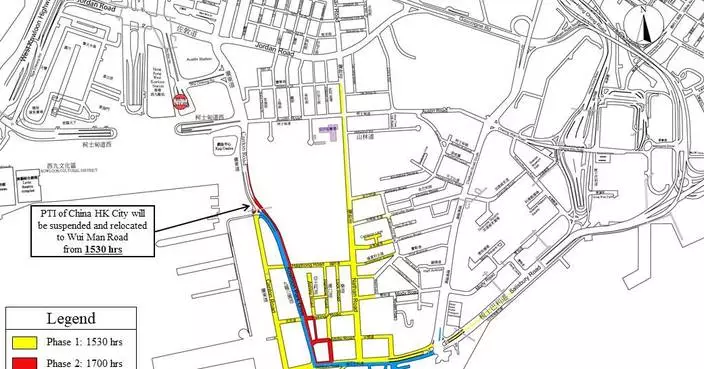Beijing's wholesale market has dramatically evolved from a bustling center of vendors into a modern financial innovation hub, symbolizing the city's high-quality development and strategic urban planning.
Once a bustling wholesale market located in Xicheng District with over 11,000 vendors, the area was known for its congestion and logistical difficulties. In 2014, it began relocating vendors to make way for the development of a modern financial district.
According to management authorities, the most challenging issue during the large-scale relocation process was disputes over property rights.
Through a series of mergers, restructuring, and financing efforts, Xicheng District, once home to a bustling wholesale trade network, now boasts sleek office buildings filled with startups and financial enterprises. Despite an obvious reduction in its workforce - now just a quarter of what it was decade ago - the district's GDP has more than doubled.
A striking sculpture made from 1,000 hangers and 2,000 welding points now stands as a tribute to the vendors who once thrived here. Shaped like a mythological creature, this art work symbolizes both the district's past and its bright future as a hub for financial technology (fintech) and innovation.
Today, the area has become a magnet for tech startups and financial companies, offering rent discounts, tax incentives, and robust support for new projects. In 2021, Beijing Interstella Glory Space Technology, a commercial rocket company, established its headquarters here for the district's attractive business environment.
"In fact, the business environment is extremely important for companies. Additionally, for businesses that have plans for future listings, aspects such as specialized training and guidance for financing, as well as talent acquisition, are also crucial," said Cai Jingqi, a representative from the company.
To phase out non-essential industries and promote coordinated development across the Beijing-Tianjin-Hebei region, China's top economic planner introduced a three-year action plan recently, with 19 measures aimed at improving the business environment and supporting key sectors such as advanced manufacturing, cybersecurity, and financial services.
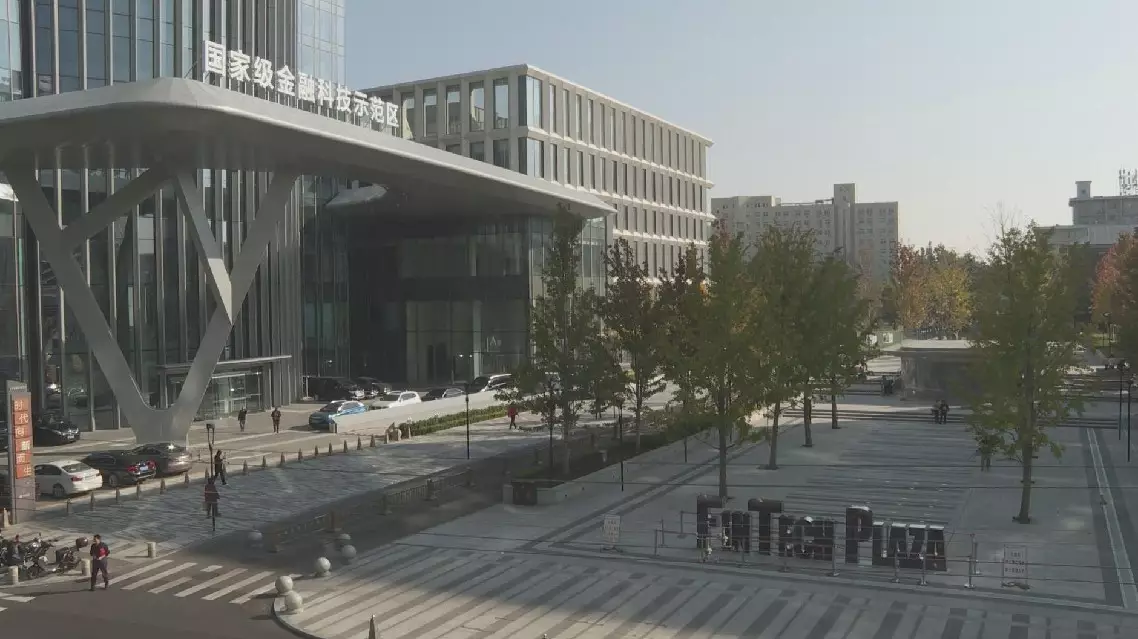
Beijing's wholesale market transforms into dynamic financial innovation hub
The new Shenzhen-Zhongshan Link, a high-speed transportation corridor connecting cities within the Guangdong-Hong Kong-Macao Greater Bay Area launched in 2024, is injecting fresh vitality into Zhongshan's tourism sector during the Spring Festival season, as travelers seek to explore the historic city's cultural attractions.
With the new expressway connecting Zhongshan City to the regional traffic hub of Shenzhen, residents in the Greater Bay Area can now enjoy a significantly reduced commute time to visit the historic city. On the first morning of the Spring Festival, Hong Kong visitors poured into the Shenzhen Bay Port, with buses to Zhongshan City running at full capacity as they made their way to the city's popular attractions.
"My family would go back to our hometown for Spring Festival almost eve0ry year. It was not so convenient in the past, taking around four hours. But now, the travel time has been shortened by two hours. It is more convenient now, as the Shenzhen-Zhongshan Express allows faster traveling," said Li, a resident from Hong Kong.
For gastronomes, the top destination is the time-honored local restaurants featuring the best roast squabs. As the number of visitors surged during the Spring Festival holiday, customers were already waiting in long queues even before mealtime, and many restaurants had to set up screens to update the real-time squab stock. Nicknamed "Squab Index," the number of squabs is a vivid reflection of cross-city traveling in the Greater Bay Area.
"There were around 800 to 900 squabs left when we arrived. We decided to take a short walk around, and the number had dropped below 600 in less than five minutes. If we had been just a little late, we might have missed out," said Kang, a tourist from the nearby city of Dongguan.
The restaurants are well-equipped and staffed to cater to the increased demand. "We are welcoming many new customers during the Spring Festival period, so we are opening earlier these days to get prepared, and doubling the squab prepared. During regular periods we sell 1,000 squabs per day, but during the holidays, we sell over 2,000," said Zhang Weixiong, manager of a famed restaurant in Zhongshan. The bustling restaurants are only a part of the overall travel boom. A tour guide from a Hong Kong travel agency introduced that since the opening of the Shenzhen-Zhongshan Link, more than 100 tour groups have departed from Hong Kong to cities like Zhongshan and Zhuhai every month.
During the Spring Festival period this year, the number of tour groups has increased by 50 percent compared to last year.
From the start of this year's Spring Festival travel rush up until January 28, the Shenzhen-Zhongshan Link has handled a total of nearly 1.5 million vehicle trips, with an average daily traffic flow of 98,500 vehicles, data showed.
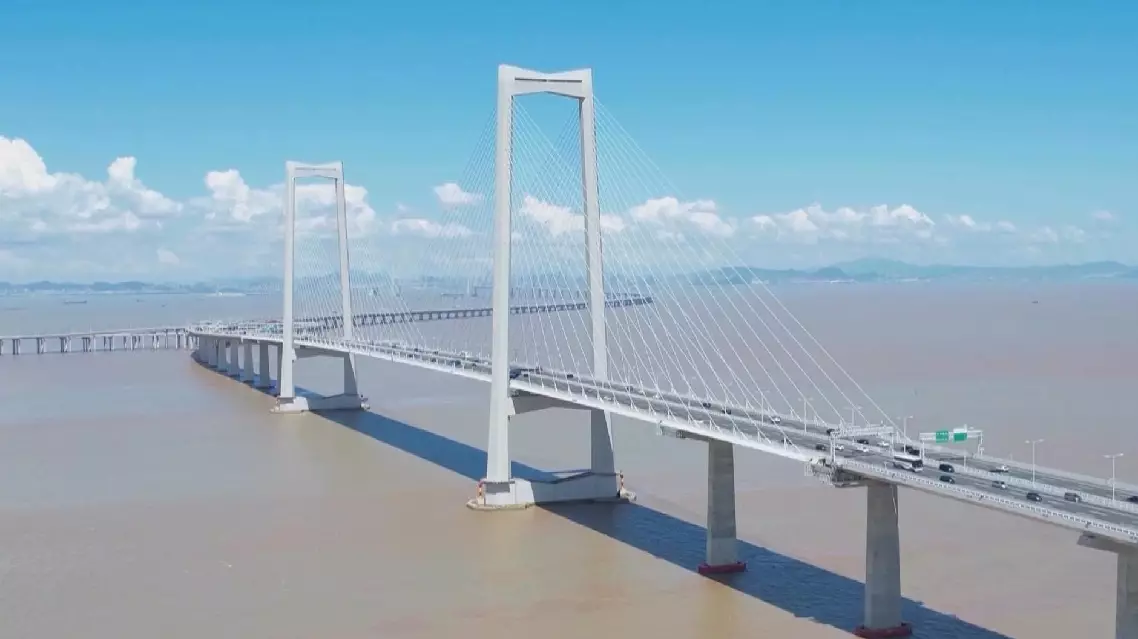
Shenzhen-Zhongshan Link ignites tourism boom in Zhongshan during Spring Festival



